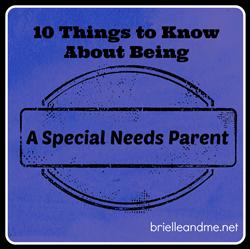The Power of Positive Parenting
By Guest Blogger Courtney Barrett, MSW, LCSW
Positive parenting is not just a parenting approach. It is a mindset. It is a habit of looking at the positive in every interaction with your child. Instead of thinking, “Why is he or she behaving that way?” – it is asking, “What skill do they need to learn at this moment and how can I help them learn it?” Or, “How can I prevent this behavior from happening again?”
A lot of problems can be avoided by preparing in advance. Letting your child know what to expect throughout the day and explaining any major changes from their regular routine can help them be their best. The more children can anticipate changes, the more likely they are to develop skills that help them adapt in different situations.
Positive parenting means talking to your kids about what you expect from their behavior. When setting rules and expectations, it’s important to be realistic and to make sure the entire family is held to those expectations. Children need to see that if using a pleasant voice or waiting our turn to speak is a rule, then it applies to parents and older children and teens, too!
One way to get everyone on board with behavior expectations is to have a family meeting and generate ideas together on behaviors that help everyone get along. After you have narrowed down the list to a few rules, fine-tune them by reframing them in positive language. If the rule starts with a “no” or “don’t,” then change it to the behavior you want to see, such as: speaking nicely or keeping hands and feet to self. This whole-family approach to guiding behavior makes everyone accountable and creates a sense of fairness and respect in the home.
Children thrive on routine and consistency, such as having regular mealtimes and sleeping routines. However, they also need consistency in the love and affection that they receive. Taking just a few moments each day to connect with your child will help you not only bond and strengthen your relationship, but it can help minimize bad behaviors. Small amounts of quality or special time do not take long. Meaningful moments happen when we’re truly present with our child, such as when they need us or ask us something.
Putting aside distractions, making eye contact, and demonstrating affection are ways to really engage with your kids. Ask yourself, “How often do I put my phone down or stop what I am doing, get down to my child’s level, look in their eyes, and really hear what they are saying?” Children need interactions like these every single day, and they also need playing and affection, such as hugging and tickling. In fact, studies show that consistent parental warmth and affection helps children grow to be happier, more resilient and less anxious as adults. Your day-to-day interactions over time not only help build a healthy relationship with your child, it sets them up for wellbeing in the future.
Parenting is not easy. There are times when your child may have tugged on your last nerve! This is normal in parenting, but it can be helpful to keep in mind that they are only little for a short while. With your support and consistency, they will learn to manage their emotions, accept limits, become more independent and solve problems on their own.
Giving children the opportunity to practice different skills is an important part of helping them learn to cope with difficult emotions. Allowing them the chance to practice can be tough in the moment, however, so when your child is having a tantrum, it can be helpful to think of those moments as one of the ways that your child practices how to regulate their emotions. This can make it easier to give them the time and space to recover from the disappointment that a situation did not go their way. They may need your support during this time, so it’s important to be patient, try not to give into your own emotions, and also to maintain whatever limit or rule you set, such as sticking to one piece of candy or only 5 minutes of remaining screen time.
You have the most important job in raising the next generation, and what you do with your child(ren) matters today! If you need additional parenting support, please contact Bringing Out the Best, for information on upcoming Triple P Parenting Seminars. Individual Triple P consultations are available to parents with children birth to 5.
Resources:
Self-care is important to remain calm and consistent with children. Check out these resources to manage stress and anxiety and take care of yourself.
Courtney Barrett, MSW, LCSW is an Early Childhood Specialist with Bringing Out the Best at UNC Greensboro. Bringing Out the Best is an early intervention program that provides family-centered, community-based services targeting children ages birth to five with social and emotional challenges in Guilford County.







